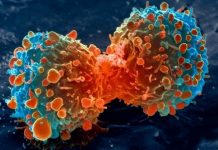Ongoing research and development has given rise to medical technology that helps control numbers of cancers that occur – either by preventing them from occurring or by treating existing cancers. The way that cancer vaccines currently work is by preventing the occurrence of certain infections that are known to actually cause cancer.
 Certain kinds of vaccines are also thought to work by preventing the occurrence of cancer in certain high risk individuals.
Certain kinds of vaccines are also thought to work by preventing the occurrence of cancer in certain high risk individuals.
Yet other kinds of cancer vaccines work by helping to treat existing cancers, either by reinforcing and stimulating the immune system to fight against the cancer or helping to defeat the cancer in some other way.
The most commonly known cancer vaccine would have to be the Cervical Cancer Vaccine – this is actually the HPV vaccine which actually helps the body fight infection of the HP virus which is known to be the cause of cervical cancer.
Similarly the Hepatitis B vaccine is known to help prevent certain kinds of liver cancers by repelling the hepatitis virus infection.
There are many vaccines for cancer that are currently either under development and/or trial or are awaiting approval from government agencies. The prostate cancer vaccine for instance has recently obtained FDA approval (though it is available to public only in limited numbers at certain select locations).
Known as Provenge (known generically as sipuleucel-T), this vaccine to prevent prostate cancer is created by taking the patient’s own blood cells and incubating them with a fusion protein. This drug works by helping improve the survival of prostate cancer patients who have an advanced stage of the cancer, by helping to stimulate their immune system to ramp up the fight against the cancer.
The BCG vaccine could also be considered to be one of the cancer vaccines since it can help to prevent bladder cancers from returning. It is thought that the BCG vaccine (which is otherwise known to prevent TB) probably encourages the immune system to work harder against the cancer cells that may be left over even after bladder cancer treatment was given.
The cancer vaccines are usually aimed at stimulating the immune system to fight against the cancerous growth in three ways – They could work to help in destroying the residual cancer cells in the body, or could prevent the cancer from returning, or they could stop or arrest any further growth of an existing tumor.















